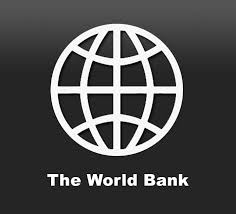Questions on World Bank Sanctions Program

When first conceived, the World Bank’s comprehensive sanctions and debarment program was seen as a significant milestone in the fight against fraudulent, corrupt, collusive and coercive practices on the part of contractors involved in Bank-financed projects. Collaborative relationships with global prosecutors and regulators were established. Strict penalties were put in place. There would finally be real teeth behind the Bank’s long-standing anti-corruption policies.
The World Bank Integrity Vice President is responsible for investigating potential violations and can impose sanctions against a World Bank contractor/borrower. The initial decision on a possible violation is conducted by a World Bank Integrity Officer.
A contractor/subject can appeal any determination made by the Integrity Officer to the Sanctions Review Board which is composed of three Bank staff and four non-Bank staff, and chaired by one if its non-Bank staff members. The Sanctions Review Board plays a critical role in holding in check any aberrant decision made at the staff level. The standard of proof for any review is preponderance of the evidence.
In a recent decision, the Sanctions Review Board reversed a sanction imposed by an INT officer. The Board’s action was interesting not only because of its opinion reversing the decision but its suggestion that the staff’s review of the evidence was sloppy and unprofessional.
Partly as a result of this action, the World Bank has opened a consultation period until September 30, 2013, to collect ideas and information on reforming the sanctions process to ensure that it is fair and impartial.
The factual background to the recent reversal is interesting: The contractor in question did not even win the loan it was seeking; but still, the INT initiated an inquiry into what it believed was a forged participation certificate used to cite prior experience and prove the firm’s capabilities. According to the Sanctions Review Board, the INT then carried out an investigation that failed to obtain a written denial from the underlying contract issuer or purported signatory that the information was false and the signature was forged; failed to obtain a signature sample; and failed to resolve significant issues and even ask the right questions in interviews with key individuals.
Worse yet, the contractor in question responded in August of this year with several charges of its own. They included the withholding of exculpatory evidence and the contractor’s belief that sanctions were brought only because the INT was colluding with a competitor in a civil action brought against the contractor. If true, those allegations are scathing indeed – as they paint a very unflattering picture of the INT.
 Now, some may see the Sanction Review Board’s reversal and cry “no harm, no foul.” The Colombian contractor involved in the case was barred from bidding on World Bank-financed projects for the 18 months it took to adjudicate the case. Furthermore, its brand has been stained in eyes of those who will decide its fate when bidding future contracts.
Now, some may see the Sanction Review Board’s reversal and cry “no harm, no foul.” The Colombian contractor involved in the case was barred from bidding on World Bank-financed projects for the 18 months it took to adjudicate the case. Furthermore, its brand has been stained in eyes of those who will decide its fate when bidding future contracts.
Let’s hope that the “consultation” process currently underway produces real reforms in the ways the World Bank policies its borrowers – including greater integrity and professional performance of important investigations.















